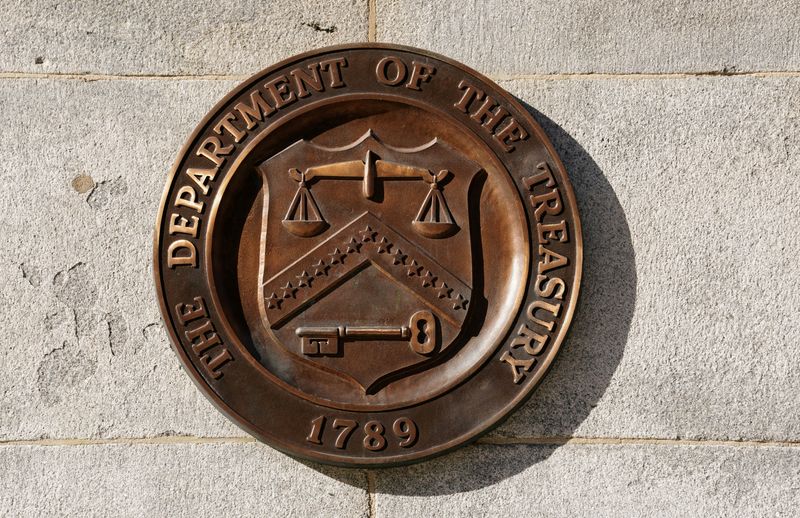WASHINGTON/LONDON (Reuters) -The U.S. and Britain announced on Wednesday they had disrupted what they described as a global money laundering ring used by rich Russians to evade sanctions, and which London said laundered cash for drug traffickers, criminals and spies.
Britain's National Crime Agency said the internationally coordinated law enforcement effort codenamed 'Operation Destabilise' had disrupted the network spanning 30 countries.
The operation also involved authorities in France, Ireland and United Arab Emirates, the NCA said. It had so far led to 84 arrests, and the seizure of over 20 million pounds ($25 million) in cash and cryptocurrency.
The network's reach spanned Britain and mainland Europe to the Middle East and South America, supporting serious and organised crime around the world, the NCA said.
The U.S. Department of Treasury said it had imposed sanctions on members of the group, which it said helped elite Russians use cryptocurrency to evade sanctions imposed after the Feb. 2022 invasion of Ukraine.
Five individuals and four entities tied to "a sprawling international network of businesses and employees that have facilitated significant sanctions circumvention", known as the TGR Group, were hit with Treasury sanctions.
"Through the TGR Group, Russian elites sought to exploit digital assets — in particular U.S. dollar-backed stablecoins — to evade U.S. and international sanctions, further enriching themselves and the Kremlin,” Acting Under Secretary for Terrorism and Financial Intelligence Bradley Smith said in a statement.
Britain's NCA said the TGR group operated alongside another network known as "Smart", helping Russians under sanctions access the financial system.
"For the first time, we have been able to map out a link between Russian elites, crypto-rich cyber criminals, and drugs gangs on the streets of the UK," said Rob Jones, Director General of Operations at the NCA.
"The thread that tied them together – the combined force of Smart and TGR – was invisible until now."
CASH (TSX:CASH) EXCHANGE
The U.S. Treasury statement said Smart was headed by Ekaterina Zhdanova, already previously sanctioned by the U.S. Office for Foreign Assets Control for helping a Russian client transfer cash into western Europe through a fraudulently opened investment account and real estate purchases. Her whereabouts were not known, it said.
The Treasury said it was also targeting George Rossi, a Ukrainian national born in Russia, who it said was believed to control the TGR Group.
Britain's NCA said the Smart network was used to fund Russian espionage operations in the past.
Both Smart and TGR were heavily enabled by the use of cryptocurrency, the NCA said. As an example, it said criminal groups in Russia with cryptocurrency would connect with drugs gangs with the same amount of money in cash elsewhere.
The networks would then arrange for the gangs to be paid in virtual currency in exchange for their cash, which would then be laundered out of the country through cash-rich businesses, such as construction companies.

After the exchange, the gangs could use the crypto to buy more drugs or firearms without the need to move any physical money across borders, the NCA said.
U.S. Treasury sanctions generally prohibit any U.S. persons or entities from conducting any transactions with sanctioned targets and freeze any U.S.-held assets belonging to the sanctioned individuals or entities.